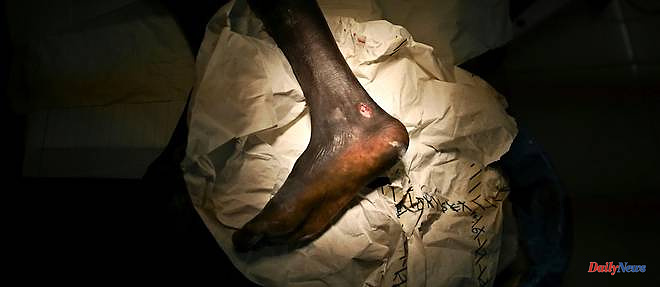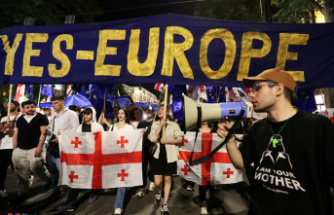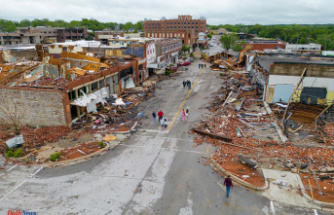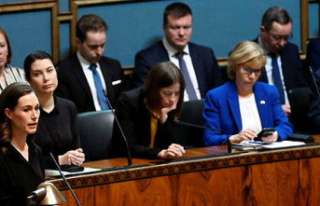In South Sudan, billions are spent on peacekeeping and the authorities want to be optimistic. But the reality is grimmer: In the youngest state on the planet, law and order rarely extend beyond the capital.
"South Sudan remains substantially peaceful": these few words from the government appear on an information sheet distributed to visitors and the press in February for Pope Francis' historic visit to the country.
Alas, on his first day in Juba, the South Sudanese capital, while the sovereign pontiff greeted the crowd of faithful, mass graves were dug just 100 kilometers away for 27 civilians who fell under the blows of automatic weapons.
Because a few years after the end, in 2018, of a civil war which claimed around 380,000 victims, armed violence continues to bloody this oil-rich country but where the majority of the population lives below the poverty line.
President Salva Kiir and his rival Riek Machar have formed a transitional government and have agreed to join forces in a single army to protect the population which has experienced war and climatic disasters in recent decades.
But these intentions have remained a dead letter and the violence continues, with complete impunity.
According to human rights experts, the worst atrocities observed between 2013 and 2018 during the civil war, such as sexual slavery or orchestrated famines, have not ceased.
"On the level of violence in the country, we see no improvement," Barney Afako, a UN human rights expert, told reporters after his visit to South Sudan in February.
"Juba is safer, but we are concerned about what is happening outside," he said.
In February, the United Nations mission in South Sudan (Minuss) warned that armed groups were again active in the Upper Nile region, where artillery shelled villages during major offensives involving thousands of soldiers.
In Jonglei and Greater Pibor, heavily armed youths kidnapped women and children in bloody raids.
Tens of thousands of people have fled to UN bases, worsening what is already Africa's worst refugee crisis.
“Those who suggest the civil war is over are wrong,” Ken Scott, former UN human rights commissioner on South Sudan and consultant for Global Rights Compliance, told AFP this month. of lawyers asking The Hague to investigate senior officials for possible war crimes.
During his visit, the pope also deplored the "persistent lack of security" and the "unfulfilled" promises of peace in the country.
"Years of war and conflict never seem to end," he said.
This is not the story the authorities like to hear.
The head of state told the pope that the presence of Mr. Machar as vice-president was proof that the peace agreement held.
In February, the two leaders personally assured the millions of people who fled the war that it was safe to return home.
Large-scale fighting between the forces of the president and vice president, however, has calmed down since the peace accord, experts say.
The clashes are often described as "inter-communal" - violence against the backdrop of ethnic or local grievances, detached from national politics.
"Throw a dart at a map of South Sudan and you'll find a conflict that has political dynamics or political drivers," said a Juba-based researcher who requested anonymity.
"The peace agreement did not put an end to that," he continues.
Critics say Minuss paints a sometimes contradictory picture of the situation.
In November, she said she was "encouraged" by the drop in the number of civilian victims.
But two months earlier, she claimed government-backed armed forces had burned people alive and gang-raped a child to death.
“I find it difficult to understand that they recognize this black on white, then that they welcome a reduction in violence”, notes the researcher who requested anonymity.
When questioned, the Minuss did not respond to AFP's requests.
The UN mission reported in February that the violence had increased sharply by the end of 2022 due to the conflict in Upper Nile state, and accused local officials of being directly involved.
With a budget of approximately 1.2 billion dollars per year, Minuss is one of the most expensive missions in the world.
"What the international community means when they say there is peace is that there is no war in Juba," says Joshua Craze, a writer who has been working on South Sudan for a long time. a decade.
02/28/2023 06:23:57 - Nairobi (AFP) - © 2023 AFP












